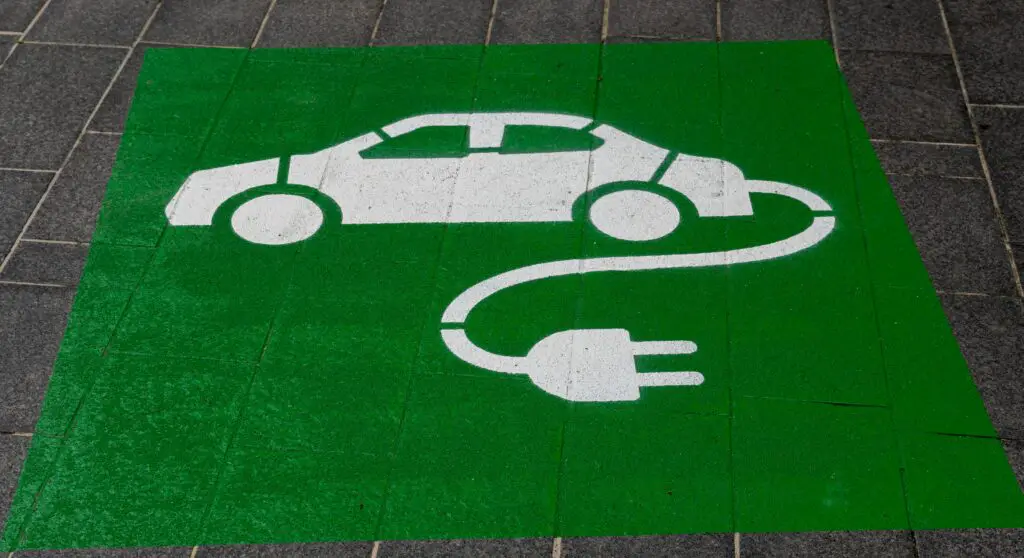We may earn money or products from the companies mentioned in this post.

Are EV’s Actually Better for the
Environment?
It isn’t news that electric vehicles or ev’s are the hottest new tech of the decade. You hear about Tesla and their explosive sales growth almost daily. If you go for a drive it has become commonplace to see an electric car on the road. Besides being fun and cheaper to drive per mile one of their biggest advantages is that ev’s are a more sustainable or green form of transportation. It seems obvious that with the lack of burning fossil fuels an electric car would be better for the environment right? After all the CO^2 from gas passenger cars accounts for about 16% of greenhouse gas emissions. Well you have to look past just driving the vehicle to really understand that is not entirely the case. So, are ev’s actually better for the environment?
Another View on “Green” Vehicles
If we take a more complete look at electric vehicles we have to look outside the box of just the vehicle itself. While the use of electricity alone does not expel greenhouse gases but it does take energy to create. That electricity is made at your local power plant and sent to your house or charging station and it is made a multitude of ways. If the power plant uses a coal or oil solution to generate that electricity it doesn’t really equal out to being a “cleaner” expenditure. The best sources come from hydro, wind, or even nuclear sources to truly reduce any environment impact. So really it is a complex issue when comparing electric to gas powered vehicles. You can find here just how your area fares compared to the rest of the United States.
Another part of vehicle pollution is in the manufacturing of a vehicle. The body and parts manufacturing of either gas or electric vehicles will equate roughly the same amount of pollution. The pain point for electric vehicles is the battery. Gas powered vehicles have developed a great  system of recycling their lead-acid made batteries where over 90% of them are successfully recaptured at the sale point. Electric cars however use lithium batteries that require mining of deep buried rare earth metals. The mining process is not so earth friendly. These components ,as well as the need of larger and larger batteries to match the driving range to a gas vehicle, actually place ev’s behind a gas powered vehicles in production “cleanness”. As far as disposing of the batteries a lot of lithium batteries end up going to landfills or being incinerated instead of reused unlike their gas vehicle counterpart lead-acid batteries.
system of recycling their lead-acid made batteries where over 90% of them are successfully recaptured at the sale point. Electric cars however use lithium batteries that require mining of deep buried rare earth metals. The mining process is not so earth friendly. These components ,as well as the need of larger and larger batteries to match the driving range to a gas vehicle, actually place ev’s behind a gas powered vehicles in production “cleanness”. As far as disposing of the batteries a lot of lithium batteries end up going to landfills or being incinerated instead of reused unlike their gas vehicle counterpart lead-acid batteries.
What are the Current Advantages of Electric Cars?
So with the apparent green effect of the ev not really turning out to be all that it seems what reasons should we keep using them? Well, just because they have a more negative impact on the environment does not mean we can’t improve that for the future. More methods to make the use of and recycling of lithium batteries can be developed. Power plants and thus charging stations can either run off cleaner energy sources like hydro to make them more efficient. In the future electric cars could likely be the better option for reducing footprint.
The biggest positive to electric cars right now is probably their added safety levels. Contrary to popular opinion they are actually extremely less likely to catch on fire or combust compared to a regular gas powered engine. In fact it is hybrid cars that are the most at risk for a car fire due to the combination of a battery and gas in a vehicle. It is unfortunate this is the case since hybrid vehicles are actually the most greenhouse gas efficient vehicles you can buy today. An electric car also has almost no lag when you press down on the pedal to go which is an added safety benefit when driving. The moment you make a decision, you have the ability to execute and react faster as you need.
So What Should We Drive?
Hybrid cars are actually the most fuel efficient and environmentally friendly at this current time. If you can get past the increased risk of fire, driving a hybrid is the way to go for now. Otherwise a gas car is actually still a better option than the electric vehicle to drive for the environment surprisingly enough.
The option that is not talked about enough is public transportation. While some cities are better at it than others, there is much to be improved. Just think, taking one train or subway with twenty or fifty people on it reduces the need for that many vehicles to go miles and miles burning fuel. In the case of electric vehicles it is less wear and tear on the vehicle thus less production of the toxic batteries, which reduces pollution. While we try to improve the viability of the electric vehicle for the future, public transportation can make a difference sooner rather than later.
Summarizing
After taking a better look at the life of an ev it is clear to see that they have long to go before they can really live up to hype of what they are being sold for. If you don’t care about the environmental effect either way well they have a great safety rating and are a lot of fun to ride in for shorter trips. They do have an added cool effect if you are concerned with that, but for the environment a hybrid or old fashion internal combustion engine gas car will be your better option. Consider taking the bus or subway when possible or even carpooling if that is your main concern. For now your Tesla is more of a joy ride vehicle than an environmentally friendly one.
Added Summary
You Might Also Like – https://www.thefullbyte.com/2022/07/13/upgrade-haste-makes-tech-waste/
